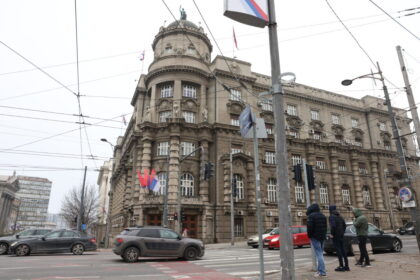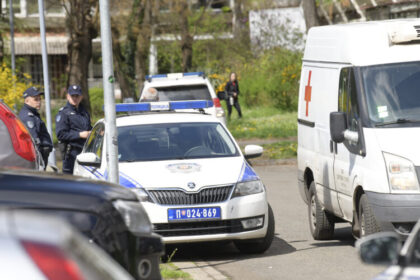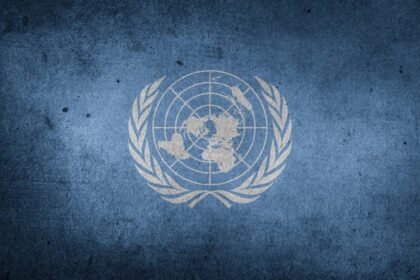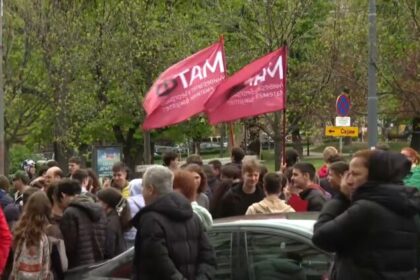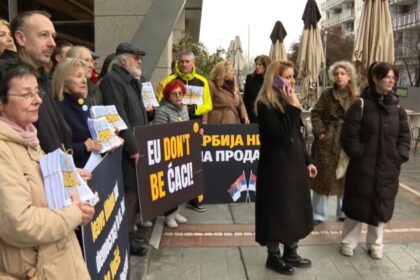**Serbia’s Lustration Law: A Step Towards Accountability or a Recipe for Conflict?**
Four months have passed since the Ecological Uprising submitted a draft Law on Responsibility for Human Rights Violations (lustration law) to the Serbian Parliament. The proposal aims to prevent individuals responsible for past human rights abuses from holding public office, but its fate remains uncertain.
The lustration law targets high-ranking officials and media executives who have been implicated in human rights violations. The draft proposes a 20-year validity period and an independent commission to determine responsibility, leading to a five-year ban from holding or seeking office. Ecological Uprising’s Danijela Nestorovic has named Serbian President Aleksandar Vucic and certain media figures as prime candidates for lustration.
While some political actors, like the Movement of Free Citizens and the Serbia Centre party, have advocated for lustration as a means of addressing past injustices, others are more cautious. Djordje Pavicevic from the Left-Green Front acknowledges historical grounds for such measures against Vucic but emphasizes that institutional reform requires broader strategies beyond lustration.
**A Lesson from the Past**
Serbia’s previous lustration law in 2003 was never implemented due to a lack of political will. The failure to disclose secret police files potentially shielded those involved in past wrongdoings, and critics warn against unrealistic expectations this time around. Pavicevic highlights the need for individual accountability, citing discriminatory examples from other countries.
Aleksandar Stevanovic cautions against mass purges based on political affiliation rather than individual responsibility. Pavicevic suggests that investigations and judicial processes may be more effective in addressing the legacy of the current authorities. He identifies numerous potential candidates for lustration based on abuses of public institutions and violations of the Constitution, referencing the Savamala demolition.
**A Path Towards Societal Healing?**
Nestorovic believes that a lustration law could initiate societal healing from individuals who have undermined institutions for decades. However, Pavicevic stresses that lustration must be combined with broader truth-seeking efforts, cautioning against hasty implementation that could result in legal repercussions.
The fate of the proposed lustration law remains uncertain, with Speaker Ana Brnabic yet to indicate whether it will be debated in Parliament. As Serbia continues to navigate its complex history and push for democratic reforms, the debate surrounding this law is crucial in determining the country’s path towards accountability and societal healing.
**What’s Next?**
The proposed lustration law faces significant hurdles, including potential misuse and political resistance. While some see it as a step towards accountability, others view it as a recipe for conflict. As the Serbian Parliament deliberates on this proposal, one thing is certain – the fate of this law will have far-reaching consequences for the country’s future.
Read More @ n1info.rs






